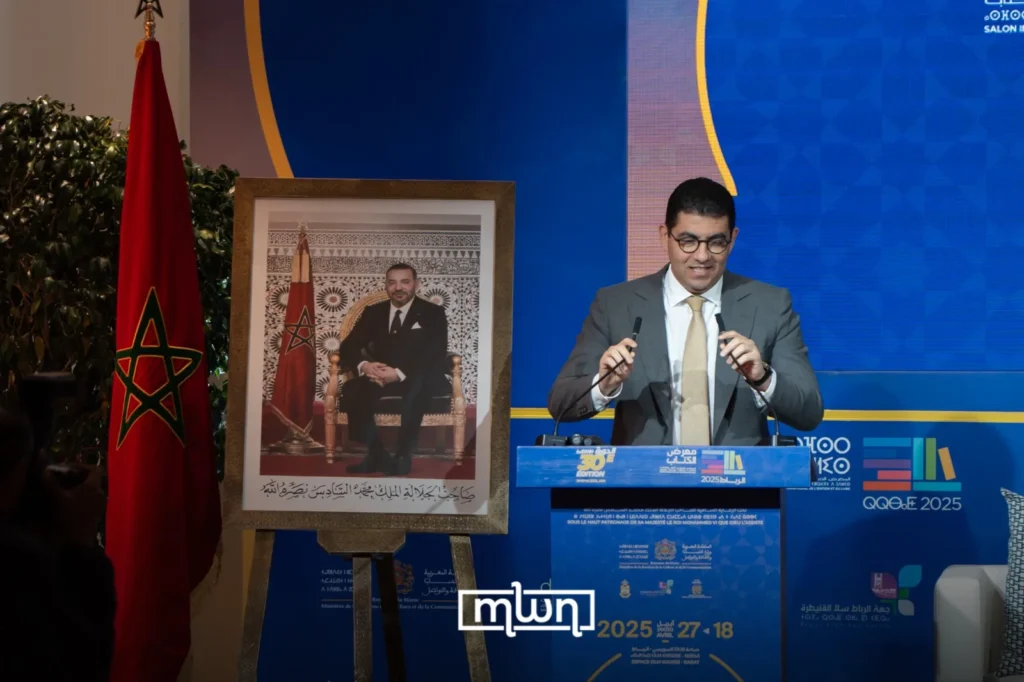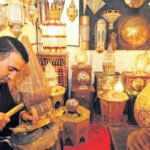Rabat – Rabat is about to turn the page on the daily routine, as it is preparing to organize one of the most expected literary meetings in the region.
From 18 to April 27th the city welcome The 30th International Book and Publishing Fair (Siel), Drawing Writers, publisher and thinker from all over the world.
This groundbreaking edition brings impressive 775 exhibitors who represent 51 countries, each of their own history to a common love for words, ideas and imagination.
With more than 100,000 titles, the fair promises bibliophiles more than just volume. His scale corresponds to the variety of programming, whereby 311 direct and 464 indirect exhibitors offer everything from philosophy to poetry, history to science fiction. Every corner of the literary world finds a voice in Rabat this spring.
The fair schedule was announced in Rabat during a press conference and has a daily average of 26 events. More than 760 speakers will take part in discussions, book presentations, poem readings and panels. Moroccan and international voices will deal with readers throughout the tenth day.
The trade fair, which was organized by the Ministry of Youth, Culture and Communication in cooperation with the Rabat-Sale-Kenitra region and the city of Rabat, is part of an increasing attempt to present Rabat as a cultural epicenter.
The expected status of the city as an UNESCO World Book capital in 2026 gives the importance of the fair even more weight this year.
One of the central themes this output Hug is a memory. The program recognizes cultural figures whose work has permanently impressed the Moroccan heritage.
Writers, scientists and artists who have shaped the cultural identity of the country are given special recognition, while the fair also honors voices from the wider Arab world through cooperation with Alecso. The IBN Battouta Prize for travel literature and the National Reading Prize are both awarded during the event.
This year’s Expo shows Sharjah as a guest of honor. The participation of the Emirate reflects its increasing importance as a cultural center in the Arab world. Emirati Publisher will join Roundables with Moroccan colleagues, while cultural heritage, children’s workshops and Arabic calligraphies offer visitors a closer view of the region’s creative pulse.
The Moroccos Minister of Culture, Mohamed Mehdi Bensaid, described Sharjah’s selection as a guest of honor as a natural choice and pointed out the consistent support of the emirate for Arabic cultural cooperation. He also emphasized the need to maintain strong ties between Morocco and his diaspora, and described the fair as an opportunity to celebrate these connections.
Siel also directs the Moroccan diaspora to attention. Four influential figures that have shaped Moroccan life abroad are received. These include the Amazigh scholar of Abdellah Bounfour, the late playwright and museologist Ahmed Ghazali, the pioneer journalist Amina Benhachem Alaoui and the late novel author Driss Chraïbi.
The diaspora segment extends beyond tributes. Moroccan voices are collected on a poem evening, which read in Arabic, Amazigh, French, English, Spanish and Italian. Ten pioneering Moroccan films that deal with migration are shown in the context of a retrospective.
The fair also reserves a prominent space for young readers. A total of 712 activities are planned for children and students, including 660 educational workshops in specially designed areas. In a section dedicated to the world of comics, a print collection inspired by the Schlumpfs is displayed, the younger visitors give a playful entry point to the wonderland of storytelling.
Books have long had an estimated place in Moroccan life, from the old libraries from Fez to handwritten manuscripts that have been passed on for generations. Today this permanent tradition finds a new swing through Siel, where the written word retains its place in the heart of public conversations, creativity and cultural exchange.





